Cvlt Nation interview – original version
CVLT NATION INTERVIEW – Original Version
SD: Let’s take this from far away. How did you get interested in music? And also, what happened with fashion, since for what I understand CVLT Nation actually started as a clothing line, which was later overtaken by the musical blog, and since your punk jackets posts are just amazing
CN: I’ve been into music since I can remember! When I was a kid, my mom worked at the Whisky A Go Go in Hollywood, and she used to take me to work with her, so I saw Black Sabbath and Led Zeppelin perform at age 5. I got really into punk rock when I was around 11, and I hung with the Venice Suicidal Boys. I guess my love for punk rock got me interested in fashion – I learned to silkscreen at age 13 and I used to make my own patches and clothes. Since then I have worked in fashion in a lot of different genres, but with CVLT Nation my wife and I decided to go with what we truly loved, which was punk rock and metal. We started the blog so that we would have something cool for people to read when they came to check out the clothes, and it kind of blossomed into a web magazine!
SD: One of the things I love more about CN is the international character, which has often been far from common in the USA. Did you start with that in mind, or did it just naturally develop in what CN is right now?
CN: CVLT Nation was meant to be international from the start. I think metal & punk rock have become a global phenomenon, and since the scene in each region is usually underground and anti-society, people have been really interested in connecting with each other from around the world. The response from the international community has also been tremendous, so that’s helped us feature more non-US bands, artists etc. Most of the artists from our clothing are from other parts of the world as well – Chile, Brazil, New Zealand, Greece, Canada, Japan. And we are building a following for CVLT Nation clothing that’s very much international.
SD: Web – more than ever – has entitled anyone to express their own opinion. On the other hand (at least generally speaking), printed magazines used to imply a little more knowledge on the subjects. What’s your opinion on the whole topic of writing about music? Is it indispensable to know the story of a musical genre to talk about it? I like All Pigs Must Die but I never cared about Entombed, should I get killed for that?
CN: Yes, everyone is entitled to one’s own take on music and art, that’s what makes it beautiful! As far as how one writes about music, I think that it should come from the heart, since that’s where you truly feel the power of music. Since that feeling is almost indescribable, some people rely on jargon and dissecting each note and riff to show that they truly understand the energy of the band’s creations. For myself, I’m no good at that, so I write about how the music makes me feel. I’ve caught some flack from people that maybe want me to be more technical, but I have had a lot of support from the bands I write about. I think they appreciate where I’m coming from when I talk about the experience of their music, and not how it was composed.
SD: Originality of contents (Artist to Artist Interview, Seven Stories…), and research also set CN apart from a lot of web stuff, and being the quite old guy I am, I always think that’s something that would deserve a printed format… Ever thought about it? Did you ever consider the press option for what you’re doing?
CN: We have considered it, but honestly, there is so much capital that needs to go into a print publication that we just don’t have right now. It’s something that’s on the drawing board and that we are considering for the future. I also think that the Internet has become so easy for people to find information on, you have to cater to an audience that wants “collectable” media, since it’s a more cumbersome vehicle for the information. People are definitely open to that in metal and punk rock – look at the vinyl, CDs and cassettes that people collect, despite the fact that they could get it in digital format. But for now, it’s much easier for us to speak to the public on a daily basis through a blog format. We also work from home and raise our 11-month-old daughter Sinead, so that takes up quite a bit of our time!
SD: You’re documenting what’s going nowadays, but you also provide some nice info about what happened in the past, via video, posts and so on. Looking at all the stuff which was produced in the last years talking about the early punk hardcore days, do you feel there’s something missing in these documents? Is there anything you feel deserve more attention?
CN: The past, especially with metal and punk rock, is very important to me, since I lived through those early days of its existence. So when I post about early hardcore, death rock, metal etc., it’s really just something I do for my own enjoyment! Each person has their own point of view about that time, so it’s hard for me to say what it was like for them. I only really know what it was like for me.
SD: For the little I know, your background is rooted in the eighties punk rock hardcore. CN kind of pushes to more extreme bands and sounds. How did your own musical taste change over the years? Was it a matter of pure sound, or did you look also for an aggressive stance that punk was slowly losing (at least in its most popular image)?
CN: I am into soul music, so if I listen to something, I listen for its soul. That could be in black metal, hardcore, classic rock, doom, hip hop, really any kind of music. Of course, I lean towards aggressive music since that’s what I grew up with, but I have an appreciation for good music in most genres.
SD: Again, you’ve been around from the 80s. Can you take the time to drop me a single episode for each decade you’ve seen passing, that somehow defines your experience with underground music? That might be a record coming out, a show you saw, whatever…
CN: As a kid in the 70s, the defining moment was seeing the album overs of Parliament Funkadelic and Bootsy Collins. They were so weird and amazing at the time, today they would probably be considered punk rock. For the 80s, it would have to be seeing Black Flag perform at the Cathay de Grande on a Sunday matinee for 15 people. They had the energy of a band playing for hundred of people. In the 90s, it was being in the studio with Tupac while he was recording 2pacalypse Now. In the 2000s, it was seeing the Beta Band perform for the first time at the Bowery Ballroom in New York. For the 2010s, it’s CVLT Nation, working for myself and talking with rad people from around the world every day.
SD: Last year there was a little buzz about bands playing events like the Scion Metal Fest, it was the classic topic of corporations stepping in the underground. You’ve probably seen a lot of this happening. Can you give us your viewpoint, and possibly a couple of examples from your memories of bad attempts to do such things in the music world?
CN: That’s a hard one – I am kind of confused about my opinion on corporate sponsorship in underground music. On the one hand, I know they are only there to either be associated with what they think is “cool” and “up-and-coming,” and also to sell us products (although I don’t think I have ever seen someone drive up to a Scion event in a Scion). On the other hand, it is so hard to be a creative individual, because most of the time you are coming out of pocket to bring your music, art or words to people. There are so many young bands and artists that I would love to see making a living from their creations, because then they could really dive into their work and spend time with it, instead of working a day job to support their creative projects. So in that way, corporate sponsorship has allowed bands and artists to reach a wider audience, get their records or pieces sold and their paid shows attended, so that they can continue to create another day. As far as bad examples, there have probably been so many!! What about the “new” Woodstock, sponsored by a bunch of corporations like Microsoft and Ace Hardware. Or look at what hip hop has become – it went from a revolutionary form of music to being almost 100% swallowed by corporate sponsorship. DIY exists for about a second in hip hop before it’s assimilated into the mainstream consumer mindset.
SD: For most of the people in their 30/40, the idea of “once it was better” is always around the corner. Since you’ve remained in the music field for so many years, is that true at all? Musicians pushing forward objectively VS the subjective memories of when you were young?
CN: In a way it’s true, maybe because it required so much more dedication and effort to put out and collect music, zines, make your own clothes, book tours. But part of the beauty of CVLT Nation is that I am in touch with what’s happening right now, and I see a lot of younger people redefining the genres and making breathtaking music. I read once that when Mozart was composing, people in the royal courts thought that his music was vulgar; same with Shakespeare – he made plays for the common man. But now both of those humans are exalted for their creations, and listening to classical music or watching and performing Shakespeare is considered to be “high class” or some bullshit. I think people have a tendency to rewrite history, and the same could be said for any form of creative art.
SD: Besides the bands you happened to mention on the blog, what comes to your mind thinking to Italian music?
CN: I’ll always think about Raw Power, when I saw them on their first US tour. Italy has a lot of amazing music being created right now, it’s somewhere I am keeping my eye on!
SD: Is there a music genre that you definitely, absolutely, cannot stand?
CN: Some of my readers may hate me for this, but I can’t do technical black metal. And I also don’t listen to anything that has racist intentions – I don’t buy that argument that people should just live and let live, and not care about what other people stand for. If they stand for racism and being a shithead, I’m not down for it. So you’ll never see any of that getting shine on CVLT Nation.
SD: Last, we have a new page on the mag which talks about the connection of brewery and extreme music (Pelican realized their own beer, Kvelertak did…), besides the consumption point of view. Living on the other side of the world, do you maybe have some examples coming to mind?
CN: In America, it’s more about cough syrup and extreme music. Other than for consumptive purposes, I can’t really think of anything…
www.cvltnation.com
(Txt by Marco Capelli x Salad Days Mag – All Rights Reserved)


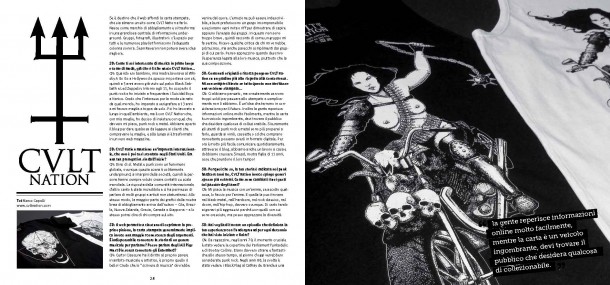
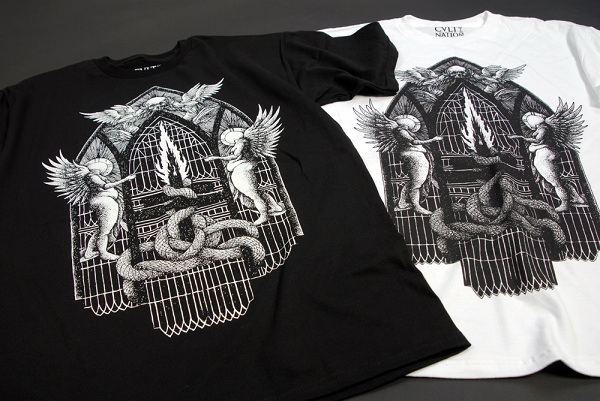
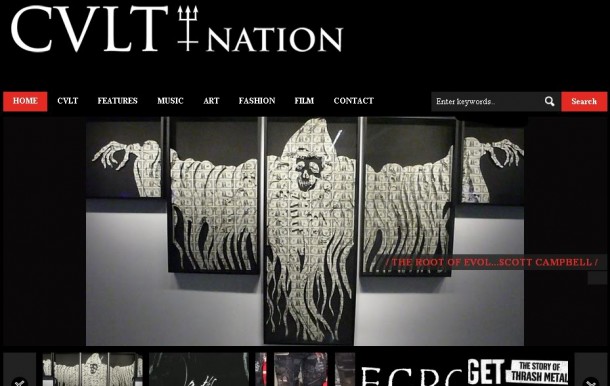

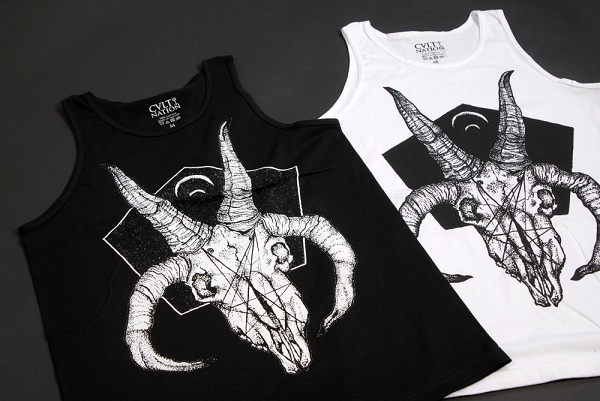
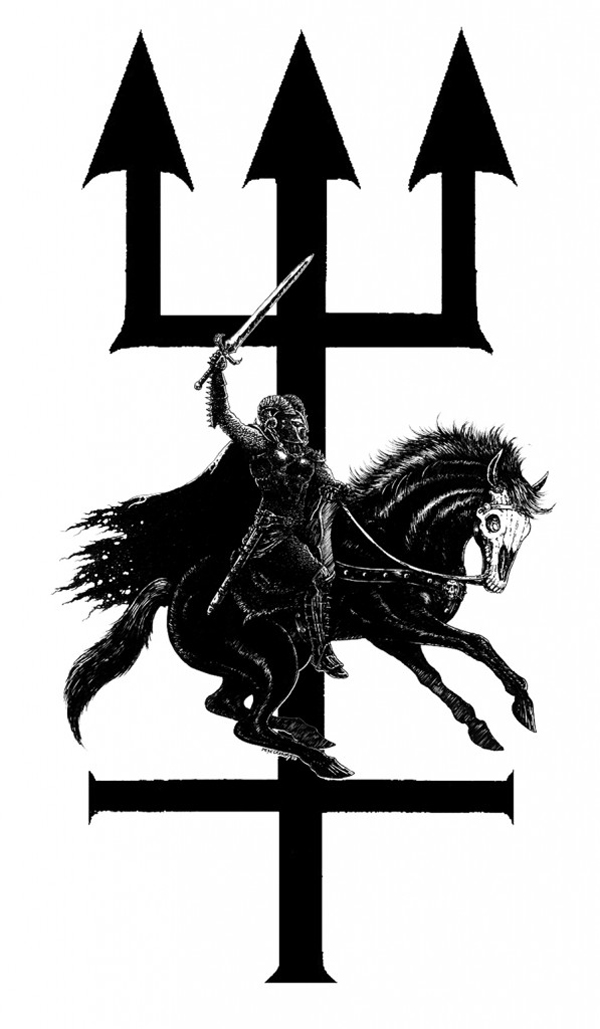
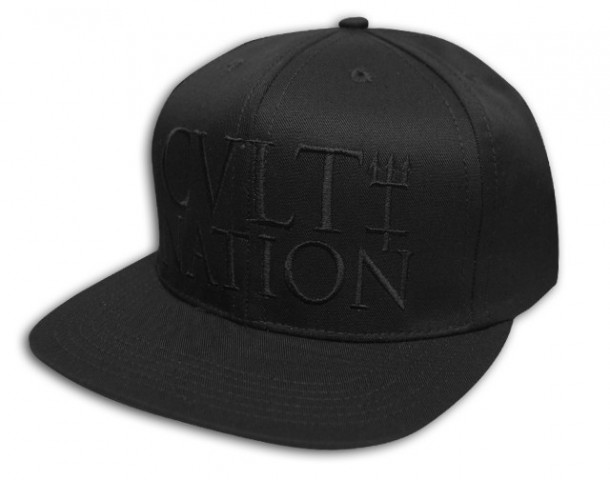

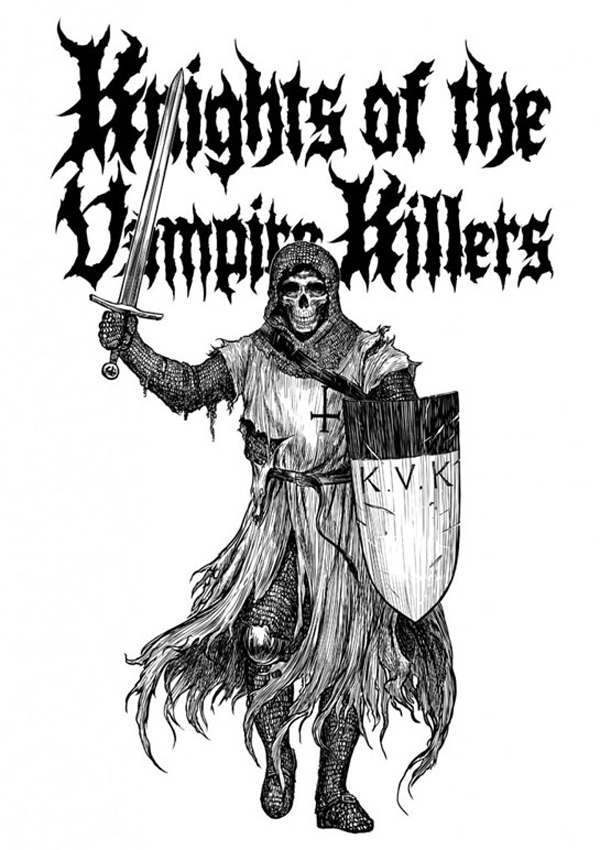
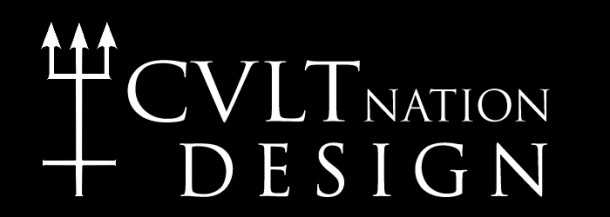
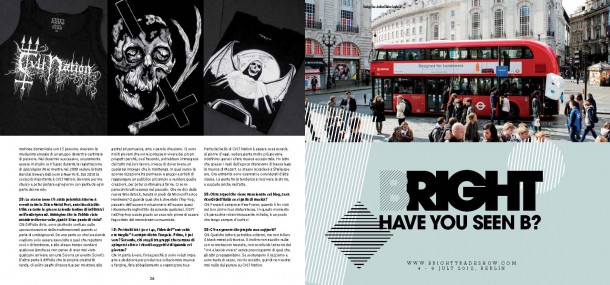
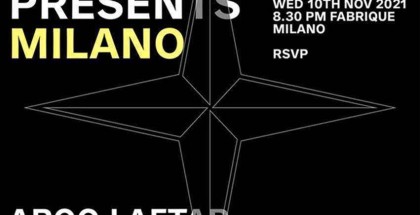
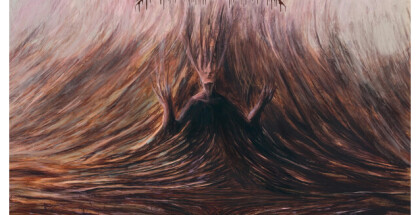
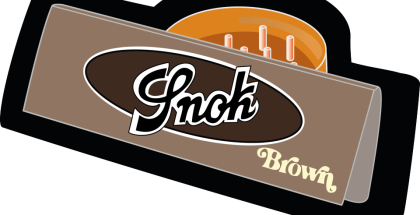
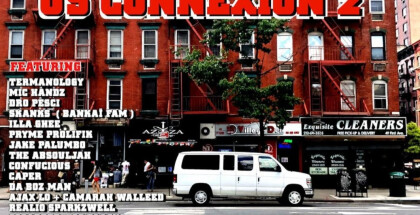







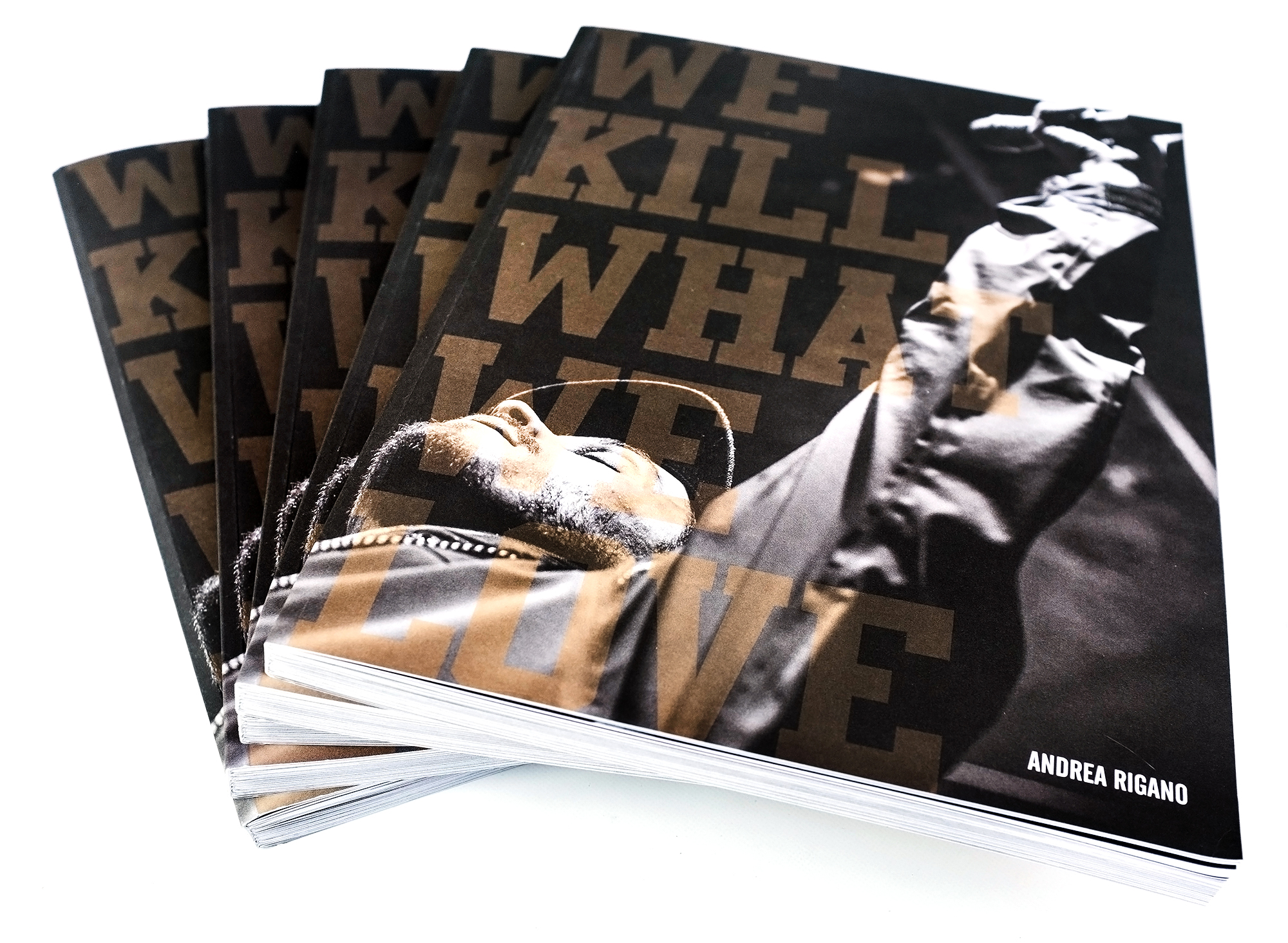

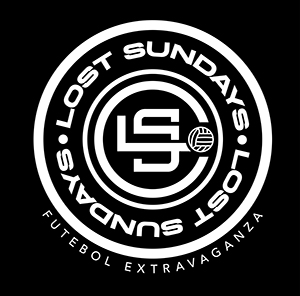

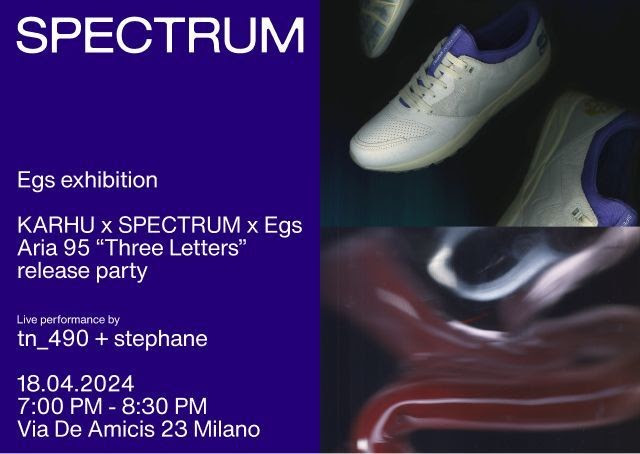
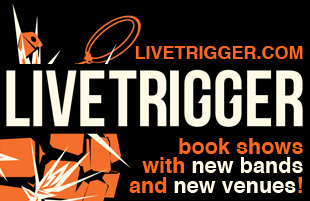
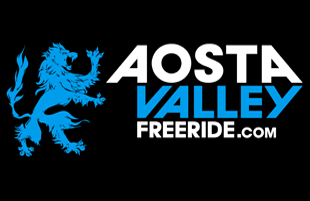
Submit a Comment